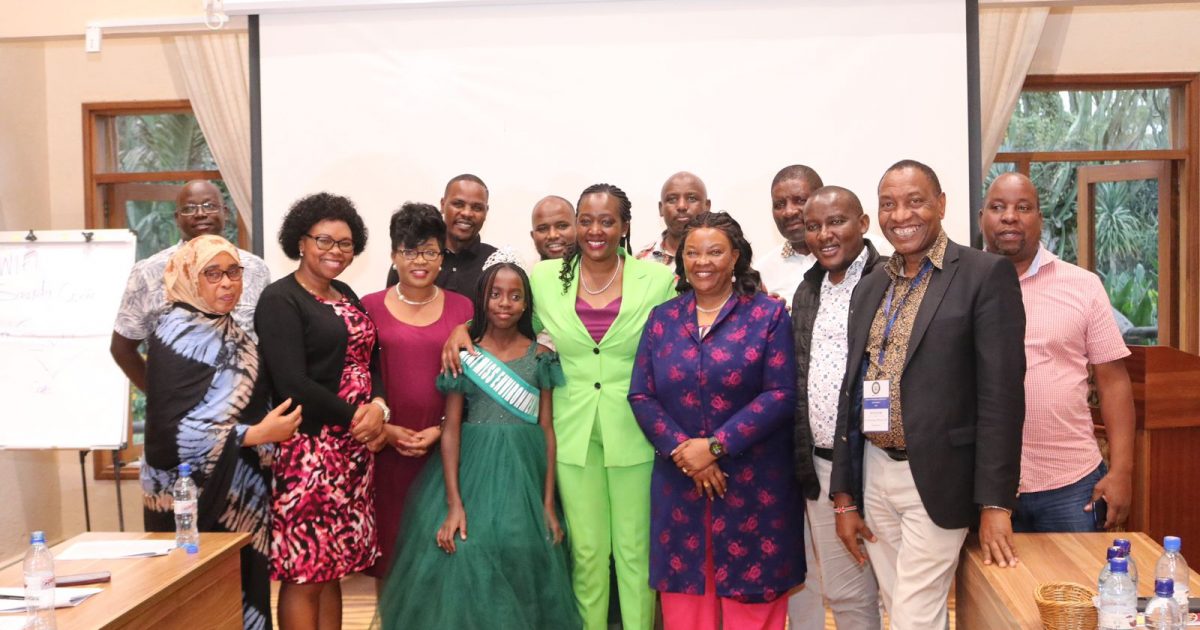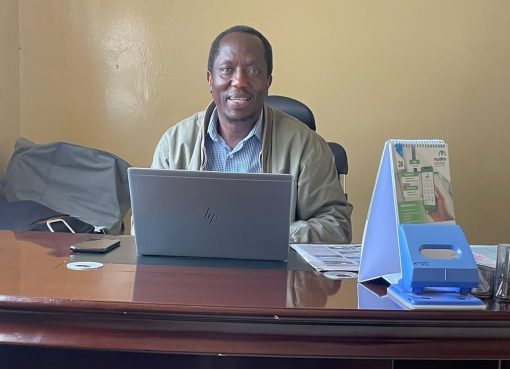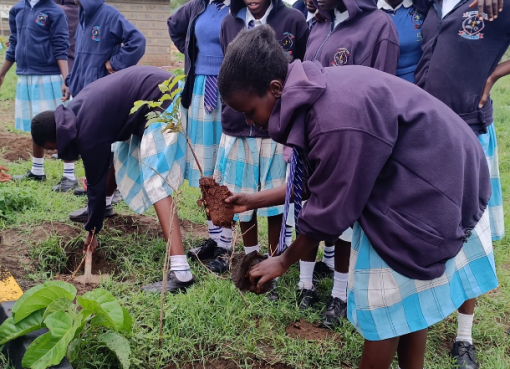The Ministry for Environment, Climate Change, and Forestry has made a raft of proposals to both the National Assembly and the Senate on some key laws together with their regulations in order to harmonise economic and environmental protection.
In this regard, Cabinet Secretary (CS) for Environment, Climate Change, and Forestry
Soipan Tuya has asked Departmental Committees that oversight the Ministry to consider reviewing some key laws that address current environmental issues.
“The many environmental problems we have identified under the current Environment Management Coordination Act (EMCA), the Forest Conservation and Management Act, and the attendant regulations, especially the obstacles to their implementation need to be fully addressed and resolved in the legislative proposals,” said the CS.
While appreciating that environmental laws and policies in the last three decades have achieved significant milestones, CS Soipan expressed the need to change some policies and laws to enable the Ministry unlock opportunities in related sectors as well as enhance community participation at the grassroots.
Under EMCA, the focus is on the Enactment of EMCA Bill, 2022; raising the status of Kenya Forestry Research Institute (KEFRI) and Kenya Water Towers Agency (KWTA) that are operating under Legal Notices, and making Kenya Meteorological Department (KMD) into a semi-autonomous agency.
Other considerations tabled were aligning of Strategic Environment Assessment with EMCA, Waste Tyre Management Regulations 2023 and a legal framework for enforcing the Plastic Bags Ban.
The CS also said there is need to amend the Climate Change Act of 2016 to enable Kenya to tap into the multi-billion sector industry of the Carbon Market. The key sectors expected to unlock the carbon trading opportunities include forestry, agriculture, energy, transport, and rangelands in the Arid and Semi-Arid Lands. This market is projected to create 300-700 jobs.
Soipan cautioned citizens against acts that degrade the environment, citing recent forest fires which destroyed about 40,000 hectares of the Aberdares moorlands.
“We need to toughen the penalties for environmental and forestry offences with specific sections and provisions for raising public awareness,” she noted.
Environment and Climate Change Principal Secretary Eng. Festus K Ngeno called on MPs to consider an overhaul of EMCA 1999 and support the EMCA Bill 2022 to incorporate the rights of nature and environmental rights defenders, crime of ecocide, conservation of urban forests and green spaces among others.
The State Department for Forestry sought to have the outdated National Forestry Policy of 1968 reviewed. Other proposals were: Charcoal Regulations and Rules 2023; Gums and Resins Rules 2023; Establishment of a Forest Regulatory Authority; formulation of a National Capital Accounting system and enhancement of Kenya Commercial Forestry Investment Centre. They also presented the National Strategy for Control and Management of the invasive Prosopis Juliflora, (commonly referred to as ‘mathenge’);
The Prosopis Juliflora issue elicited debate, as a going concern to communities where it has colonized and to environmentalists who are calling for its control and management. It is reported to have spread mostly in pastoral communities’ pastureland covering approximately 1.2 million hectares in 22 counties, with five of them – Baringo, Marsabit, Isiolo, Bura and Turkana bearing the brunt.
Prosopis Juliflora was introduced in late 1970s by the National Irrigation Board (NIB), in partnership with the government of Finland to address environmental and energy problems in irrigation schemes within the ASALs.
Baringo was among the first beneficiaries during the Fuel Wood Afforestation Extension Project by the World Bank, Food and Agricultural Organization (FAO) and the Government, whereby, in 1983, the plant was introduced in Marigat.
The goal was to mitigate desertification and fuel wood shortages in the area. It was premised on its characteristics of fast growing, drought-tolerant, resilient, and is a source of fuel wood and fodder. However, its invasion has not been managed well bringing with it ecological, and socio-economic impacts that include loss of livelihoods, biodiversity and diminished pasturelands.
On increasing national tree cover to 30 percent from current 12.3 percent, Forestry Principal Secretary Mr. Ephantus Kimotho shared the National 15 billion Tree-growing Campaign strategy which aims at restoring 10.6 hectares of tree cover for the next 10 years.
Saying this is an ambitious plan, PS Kimotho appealed to the Parliamentary Departmental Committees to become ambassadors by championing the cause in their constituencies.
“You can do this by using an ‘Adopt a forest’ or ‘Adobt a school’ approach whereby you can encourage the fencing of schools and establishing tree nurseries in your constituencies,” he proposed, adding, they should plan for at least two percent budget allocation from their CDF kitty for planting trees.
Chair of National Assembly Departmental Committee on Environment, Forestry and Mining, Mr. David Gikaria said the Ministry needs to balance between strategising for environmental, climate change and forestry conservation and countering calamities like forest fires which eat into the gains.
“As we plan for growing of 15 billion tress in the next ten years, we must also plan for calamities like forest fires that destroy the very cause we are championing for,” he said.
The Vice chairman, Senate Standing Committee on Lands, Environment and Natural Resources, Samburu Senator Dr. Ltumbesi Lelegwe assured that the Committee will work closely with the Ministry through continuous engagement.
Senator Lelegwe called for unity of purpose and taking collective responsibility in addressing environmental, climate change and forestry concerns.
In the meantime, Nakuru County Miss Environment, 11-year-old Natalie Silantoi, said she is engaged in dustbins distribution, an opportunity she uses to raise awareness on safe disposal of solid waste.
Silantoi who has held the Miss Environment title since 2020 has so far planted over 1,000 trees and intends to pursue her passion by targeting the Menengai Hills and Mau Forest.
These legislative proposals were made during a Workshop with Members of Parliament from the Senate Standing Committee on Lands, Environment and Natural Resources and the National Assembly Departmental Committee on Environment, Forestry and Mining in Nakuru County.
The meeting was organized to sensitize the Standing Committees on all the Bills in the Ministry as a whole.
By Nancy Mathu





